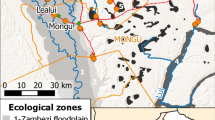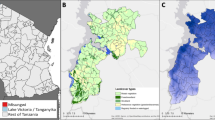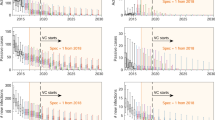Abstract
IN the concluding remarks to his article1 on Anopheles gambiœ in America, my old friend and colleague, Dr. John Smart, of the British Museum (Natural History), suggests that men engaged at present on anti-malarial or other entomological work with the Forces may be engaged after the War to continue work of this kind in the Colonies and elsewhere.
This is a preview of subscription content, access via your institution
Access options
Subscribe to this journal
Receive 51 print issues and online access
$199.00 per year
only $3.90 per issue
Buy this article
- Purchase on Springer Link
- Instant access to full article PDF
Prices may be subject to local taxes which are calculated during checkout
Similar content being viewed by others
References
Smart, J., Nature, 153, 765 (1944).
Author information
Authors and Affiliations
Rights and permissions
About this article
Cite this article
CHAPMAN, K. A Colonial Scientific Service. Nature 155, 146–147 (1945). https://doi.org/10.1038/155146b0
Issue Date:
DOI: https://doi.org/10.1038/155146b0
This article is cited by
-
A Colonial Scientific Service
Nature (1945)
Comments
By submitting a comment you agree to abide by our Terms and Community Guidelines. If you find something abusive or that does not comply with our terms or guidelines please flag it as inappropriate.



